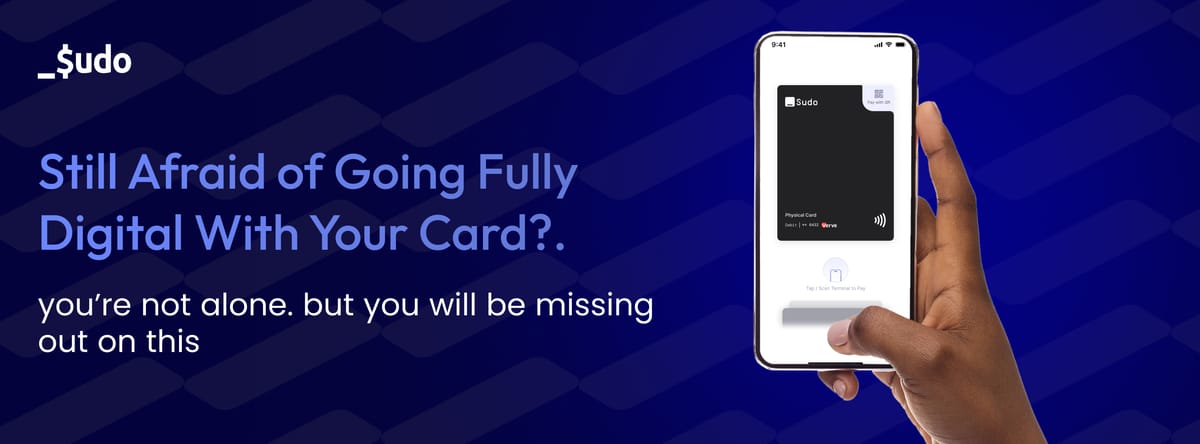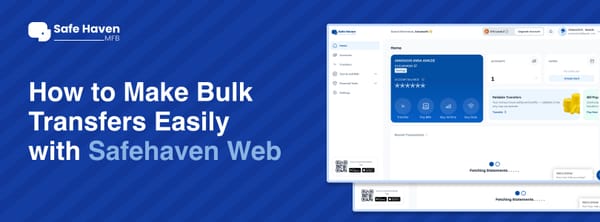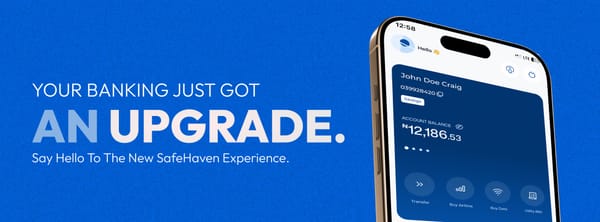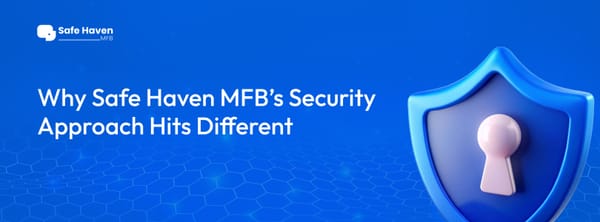Still Afraid of Going Fully Digital With Your Card? You’re Not Alone. But You Will Be Missing Out On This.
The digital lifestyle isn’t some foreign concept, it’s thriving here. Whether you’re tapping to pay with a smartphone, using a USSD shortcut, or scanning QR codes, Here is how Sudo’s tech is built for Africa.

Let’s be honest, going fully digital with your card feels like a big leap. There’s something about holding a physical card that feels secure, almost like proof that your money is real.
But that hesitation? It’s more common than you think. “What if my phone gets stolen?” “Can I really trust a card I can’t touch?” “No physical backup… what if something goes wrong?”
These are valid thoughts but they’re rooted more in habit than reality. And holding on to them might be costing you the freedom, security, and smart features that digital cards offer.
Let’s clear the air on what you’re actually missing out on.
1. Thinking “Digital” means “Less Secure” Actually, it’s the opposite. Sudo’s Digital‑First Card uses cloud-stored dynamic CVVs, not static ones printed on plastic. That means even if your device is lost or compromised, your sensitive card data stays safe. No magnetic strips to clone. No numbers to skim. Just smart, modern security that works 24/7.
2. Believing it’s only for “technologically advanced” countries Let’s drop that myth. The digital lifestyle isn’t some foreign concept, it’s thriving here. Whether you’re tapping to pay with a smartphone, using a USSD shortcut, or scanning QR codes, Sudo’s tech is built for Africa. Because Africa is technologically advanced, and we deserve systems that work seamlessly with our pace.
3. Waiting days for a card when you could be spending in minutes Ordering a plastic card often means waiting for delivery, tracking a courier, or visiting a branch. With Sudo’s Digital‑First Card, you get instant access. The moment you complete your registration, your card is ready to go, fully functional, secure, and built for smart payments.
So, What Makes Sudo’s Digital‑First Card Different?
It’s Instant. No forms. No queues. No waiting. Cards are issued the moment users complete onboarding. One click and boom, you’re live. That’s less friction for customers, and more speed for businesses looking to scale.
It’s Cheaper for Everyone. Traditional physical cards can cost fintechs and banks anywhere from ₦1,800 to ₦2,000 per card. Now multiply that by thousands of customers. Sudo slashes those costs dramatically, making it feel like you're barely paying anything. That’s a win for your wallet, and a bigger win for startups and financial institutions that need to channel every naira into growth, not logistics.
It’s Secure. Most physical cards use a static CVV printed on the back, once it’s exposed, your money’s at risk. Sudo’s Digital‑First Card is different. Each transaction uses a one-time-use, dynamic CVV stored securely in the cloud. That means no replays, no cloning, and no need to sleep with one eye open.
It’s Built for African Payments. Tap it. Scan it. Add it to your mobile wallet. Sudo is designed to work whether you’re in a smart urban hub or in the heart of a rural community. The technology adapts to your ecosystem, not the other way around.
Still Holding On to Plastic? Here’s Why It’s Time to Let Go
- Instant Setup: Customers aren’t stuck waiting days to start spending, they’re ready in minutes.
- Lower Costs: Makes it practical for businesses to scale without bleeding money on logistics.
- Dynamic Security: Reduces risk and builds confidence, especially in regions vulnerable to card fraud.
- Tap + QR Compatibility: Works with how people pay now, and how they’ll pay next.
No Plastic. No Panic. Just Payments, Reinvented.
Sudo’s Digital‑First Card isn’t just a virtual alternative, it’s a complete rethinking of how payments should work in Africa. It’s faster for consumers, leaner for businesses, and smarter for everyone in between.
Because the future of money is instant, secure, and borderless, and it’s already here.
Learn how your business can go live with Sudo’s Digital‑First Card today.





